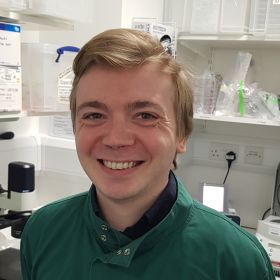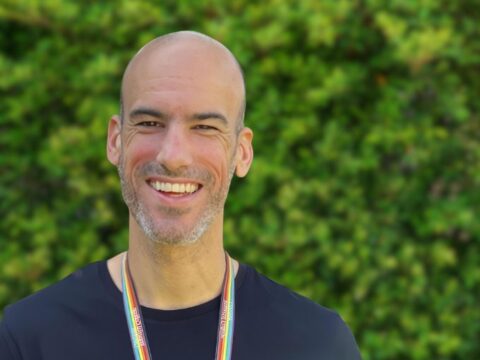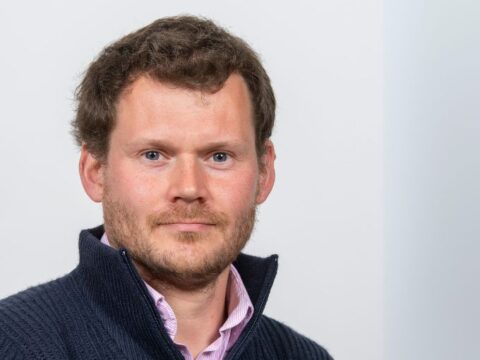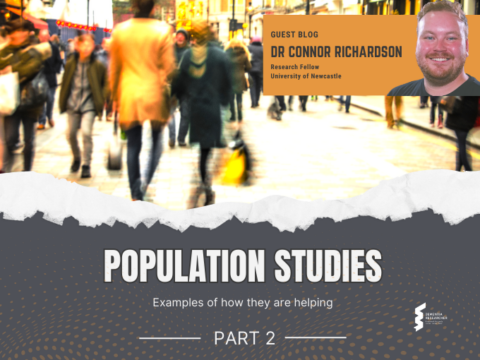
Dr Sam Washer
Name:
Dr Sam Washer
Job Title:
Postdoctoral Research Fellow
Place of work / study:
Wellcome Sanger Institute
Area of Research:
Functional (Epi)Genetics, cell modelling, and CRISPR screening.
How is your research funded:
Open Targets
Tell us a little about yourself:
During my undergraduate (and A level studies) I took a particular interest in genetics and neuroscience, specifically functional genetics, and how genes link to cellular function and can result in disease.
As a result, I studied for my undergraduate in Medical Sciences at the University of Exeter, specializing in genomics, bioinformatics, and neuroscience. During this time I undertook a placement year at Newcastle University where I was using the new technology (at the time) CRISPR, to edit zebrafish to understand cardiac development. This placement cemented my interest in the power of genetic editing to understand the fundamentals of biology and an insight into the potential therapeutic use of these techniques.
Upon my return to Exeter I completed my studies and stayed in the city, undertaking a PhD with Dr Emma Dempster and Prof. Jonathan Mill in the complex disease epigenetics group. My work involved developing methods for functional validation of Schizophrenia risk genetic and epigenetic risk loci using novel genetic and epigenetic editing techniques in cellular models.
Following my PhD I moved to the University of Oxford to work on a collaborative project with the Wellcome Sanger Institute and Open Targets. My work is to develop and implement whole genome CRISPR screens for microglia function in Alzheimer’s Disease. While in Oxford I worked with Dr Sally Cowley at the James and Lillian Martin Centre for Stem Cell Research, developing novel methods of generating microglia from induced pluripotent stem cells (iPSC), and novel cellular assays for examining microglial function. I then moved to the lab of Prof. Daniel Ebner at the Target Discovery Institute where I undertook pooled CRISPR screens for microglial function.
Following this I moved to the Wellcome Sanger Institute where I now work within the Cellular Gene Editing Research and Development team headed by Dr Andrew Bassett. Here I am validating the hits from my CRISPR screens using arrayed CRISPR screening, high content microscopy, and the newest cutting edge technologies in genomics and genetic engineering.
Tell us a fun fact about yourself:
I moonlight at a semi-professional musician! I play the tenor saxophone and can usually be found playing gigs in and around Cambridge and Oxford, either at pubs, weddings, or the odd College ball.
Why did you choose to work in dementia research?
When I was studying for my A levels I took a part time job at a nursing home back in Somerset which specialized in dementia care. I used to run activities and games for the residents to try and keep them active and to give them some fun. This job still has a fond place in my heart as it was my first experience of people living with dementia and other psychiatric disorders, and I think this is what stemmed my interest in neuroscience.
I kept this job up until I was 18, when I moved onto personal care as a health care assistant within the same home. This gave me the insight of the disease itself and the difficulties which the people, and also their families, go through in their every day lives. Something which interested me is that within the home two residents could present with different forms of dementia (be that Alzheimer’s or Dementia with Lewy Bodies) and have similar but subtlety different presentations. During one summer I can distinctly remember a son of one of the residents developing dementia in real time, this honed in to me the speed at which the disease works, and how we should be doing everything we can to stop this from happening.
I stayed working at the nursing home every Christmas and Summer until I finished my undergraduate degree. The work was incredibly hard but also rewarding, and I strongly believe that the care sector in the UK deserves more funding. I worked with some of the best people who would go above and beyond to care for these individuals 24/7, 365 days of the year, and they deserved more recognition.
What single piece of advice would you give to an early career researcher?
Failure is a big part of science. You’re working at the forefront of science, you’re writing the textbooks for the next generation, nobody knows what you’ll find that’s the point of doing research and that’s what keeps it exciting! Also some advice I was given for when you think research is too hard; if it was easy, everybody would be doing it.
What book are you reading right now? Would you recommend it?
Doughnut Economics by Kate Raworth, not sciency at all but incredibly interesting on how we should be changing our economic model to live within the “Doughnut”, you don’t need any economics background either so thoroughly recommend it!

 Print This Post
Print This Post





